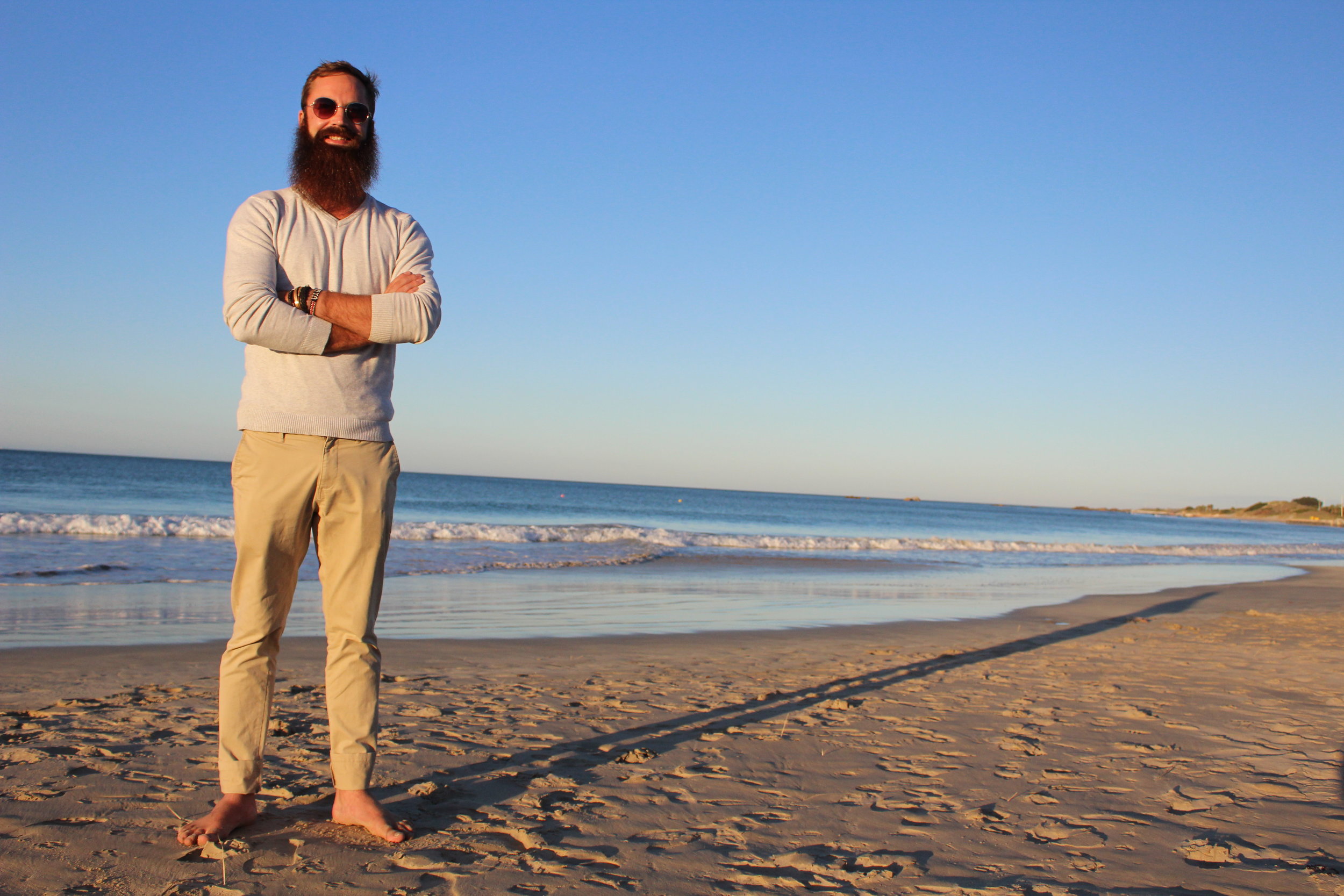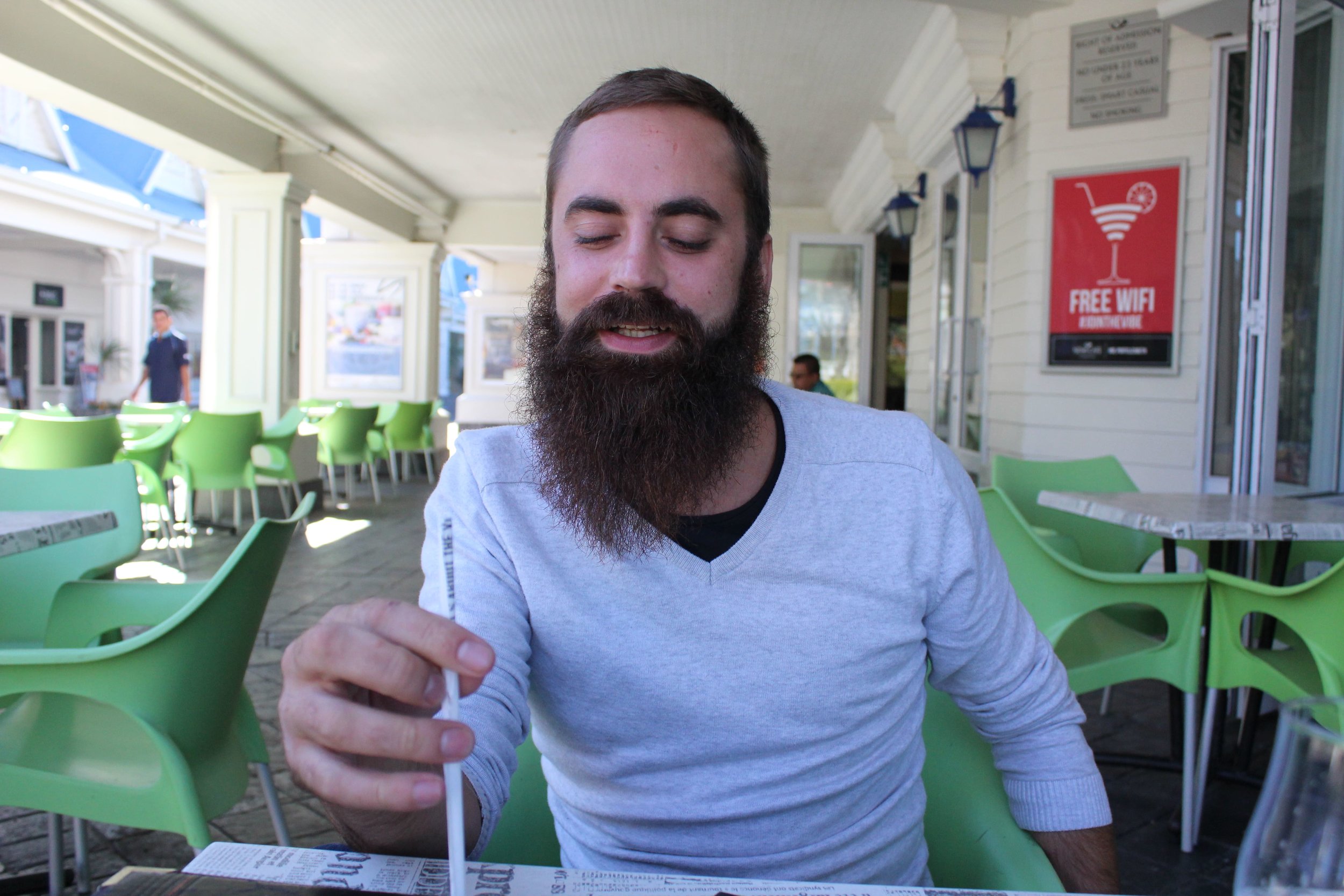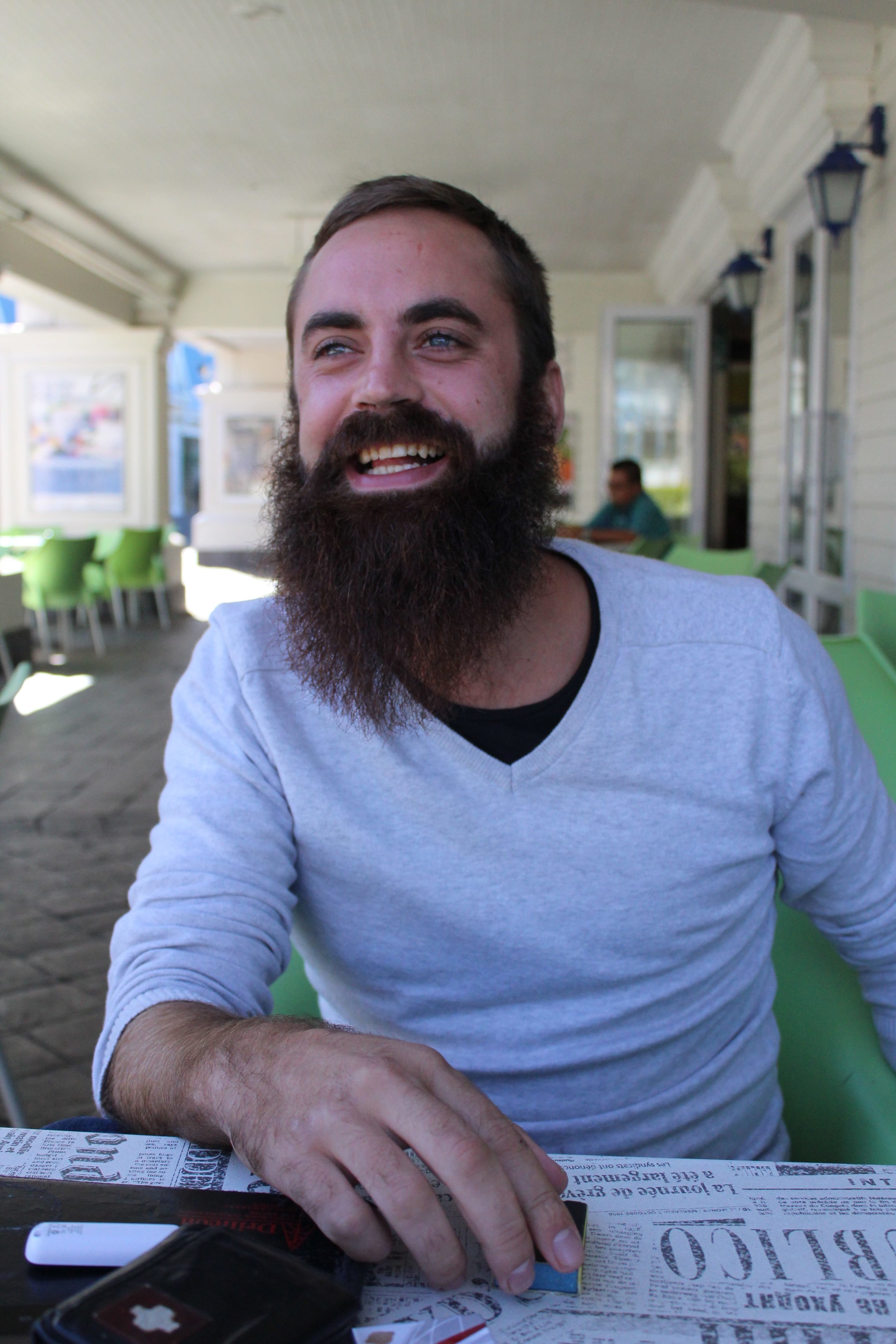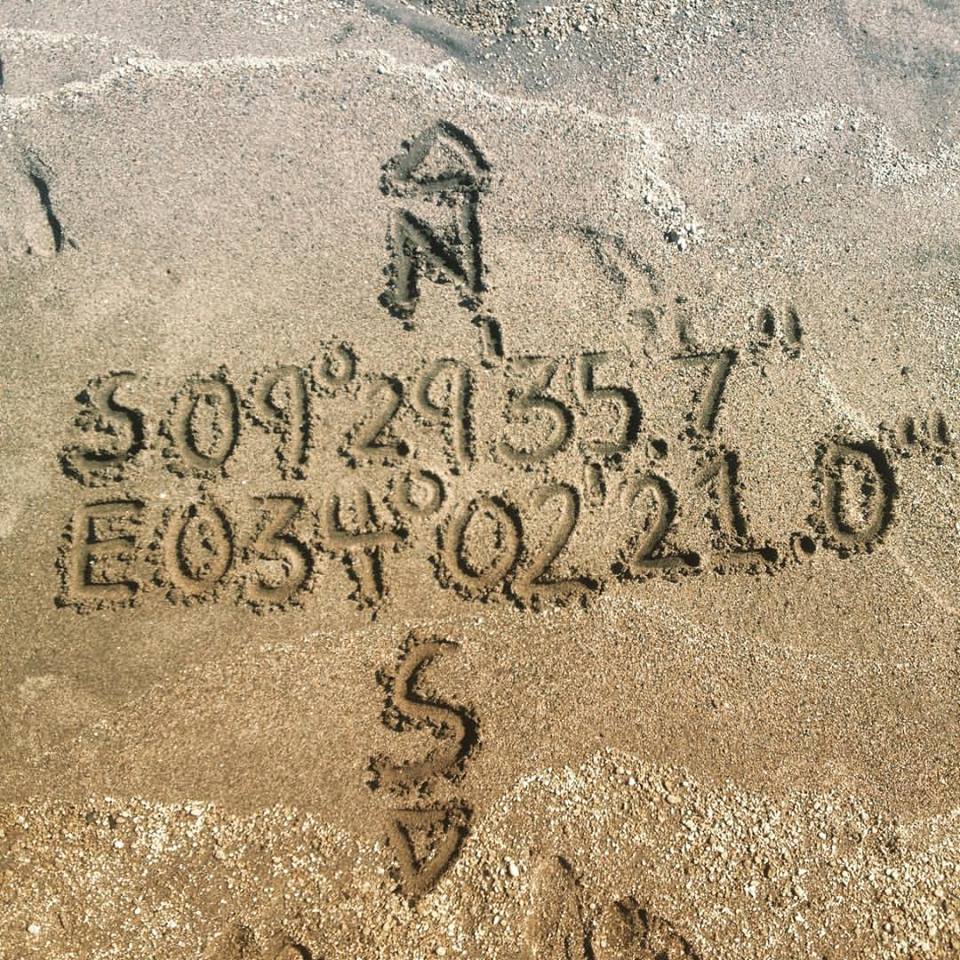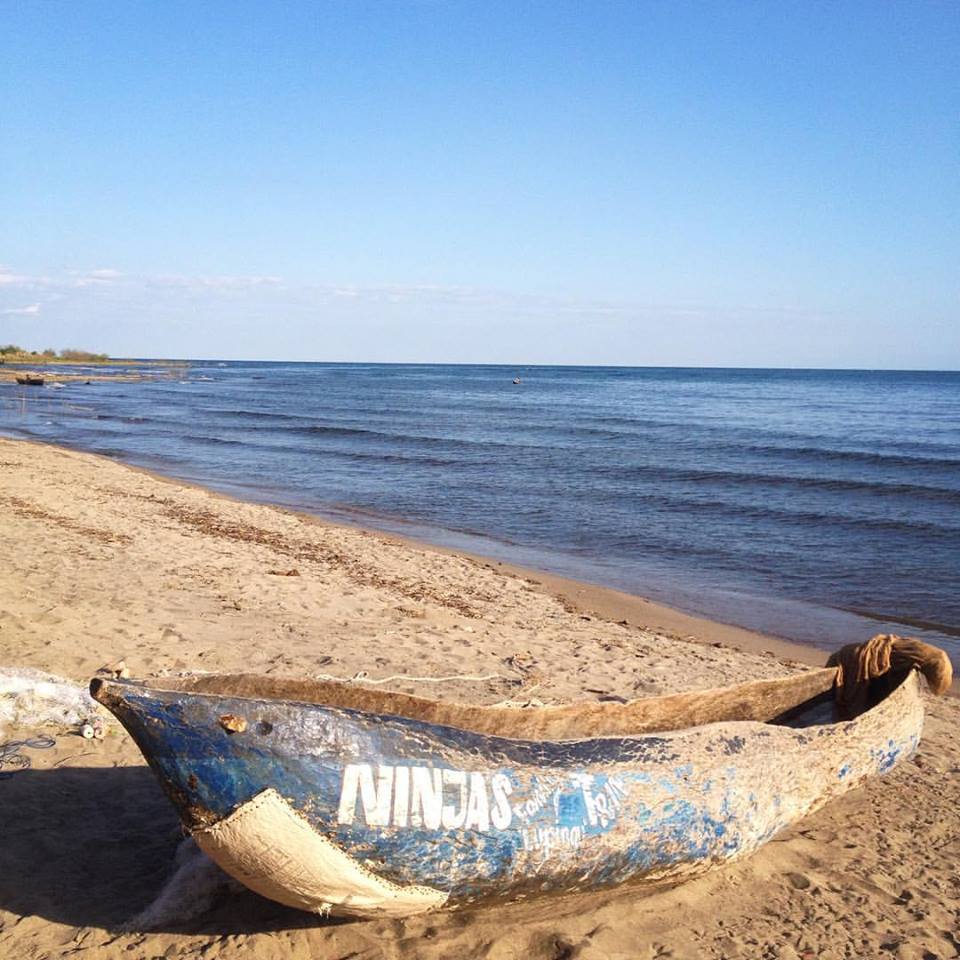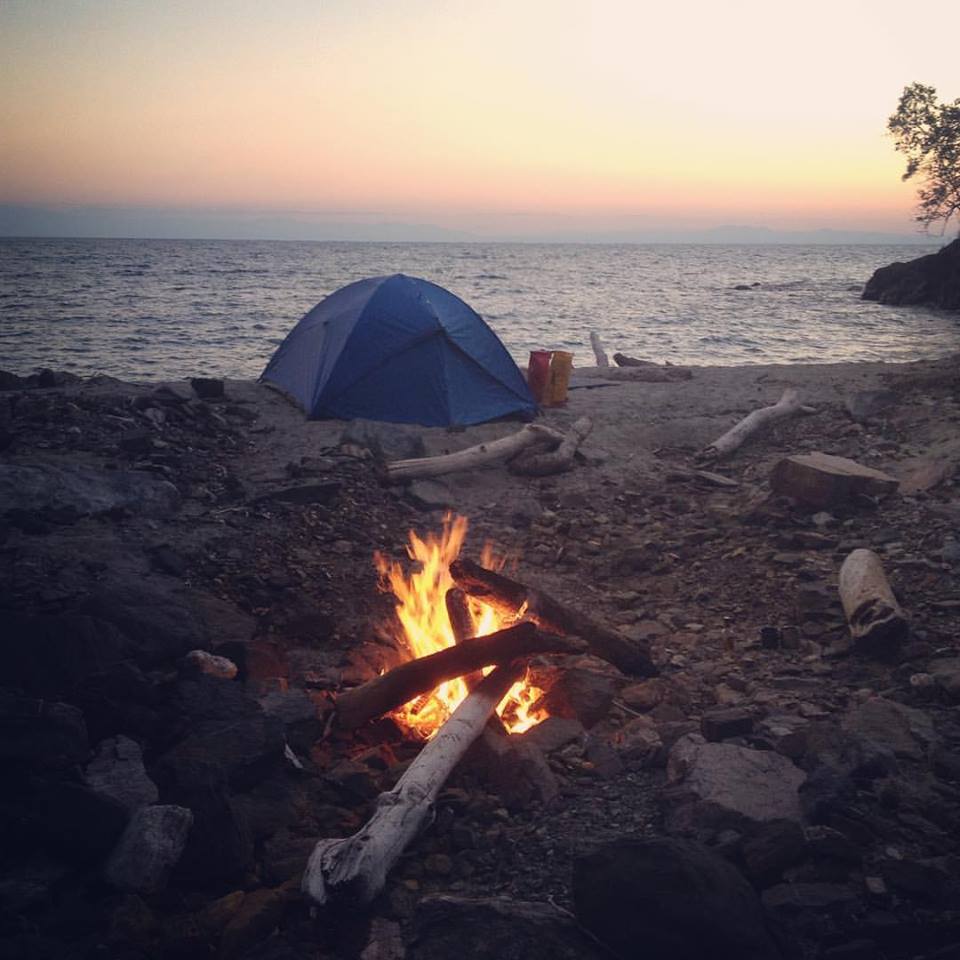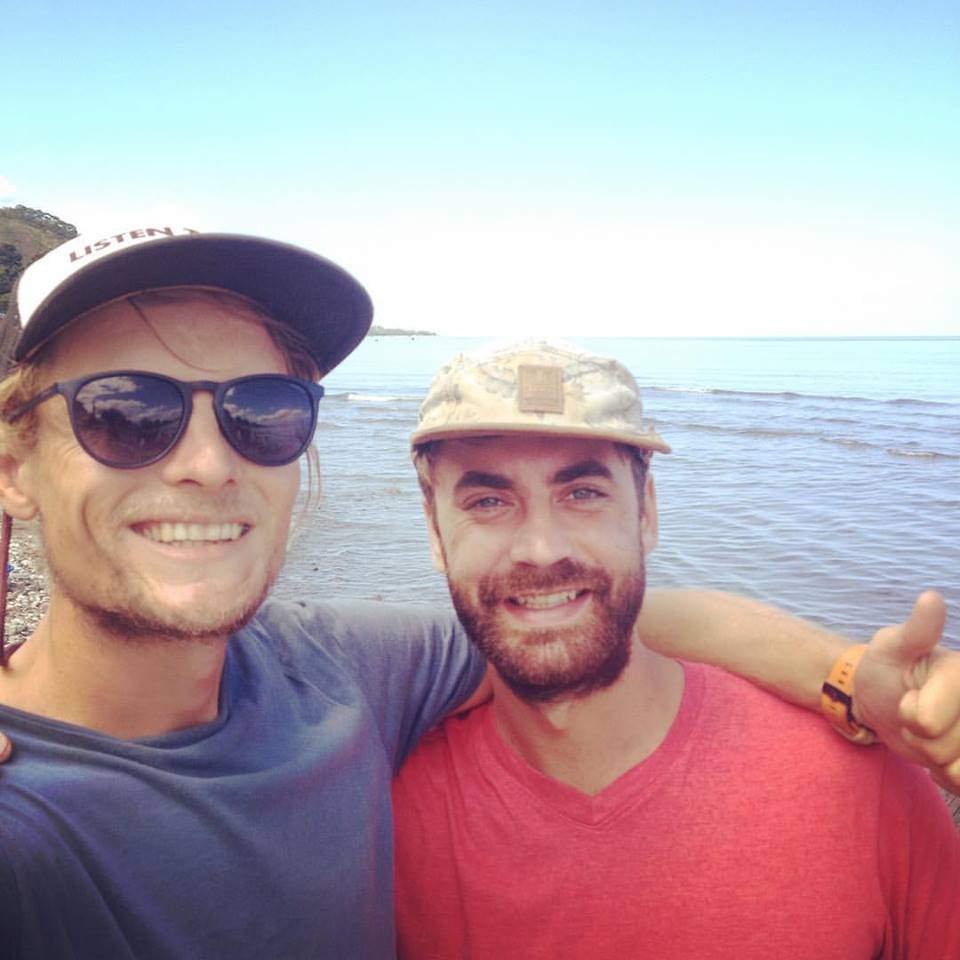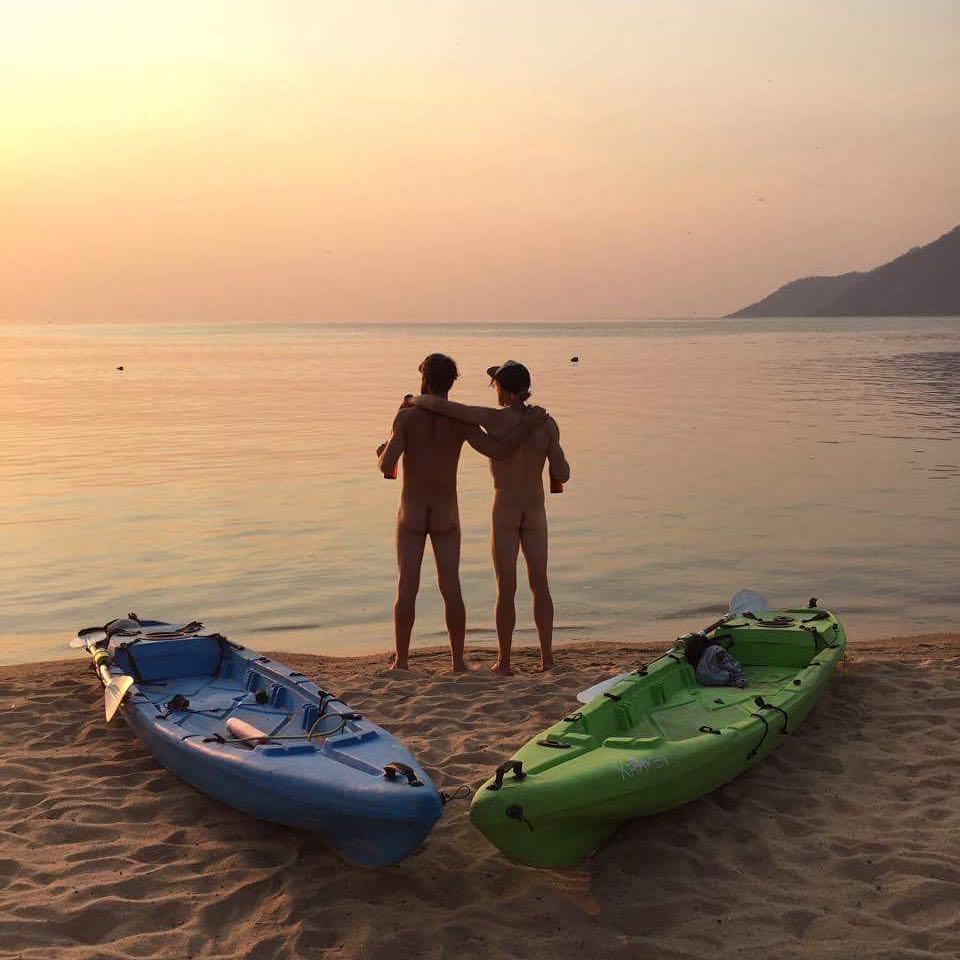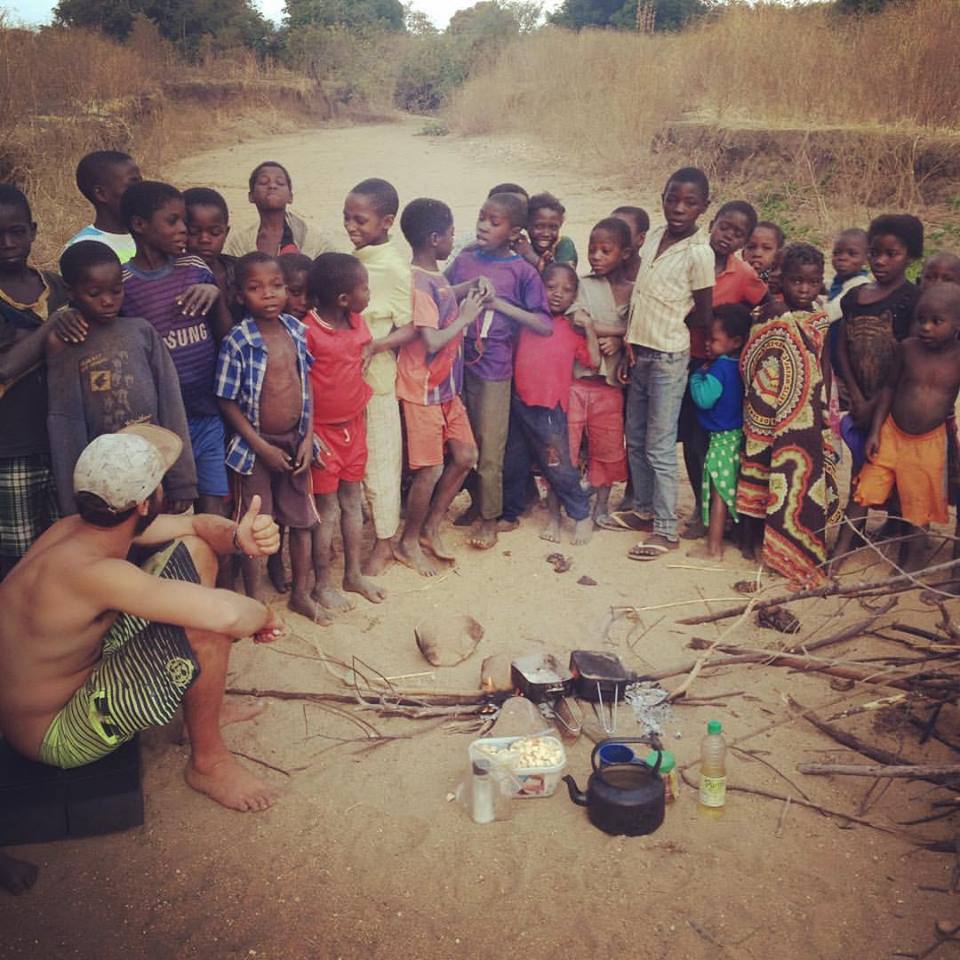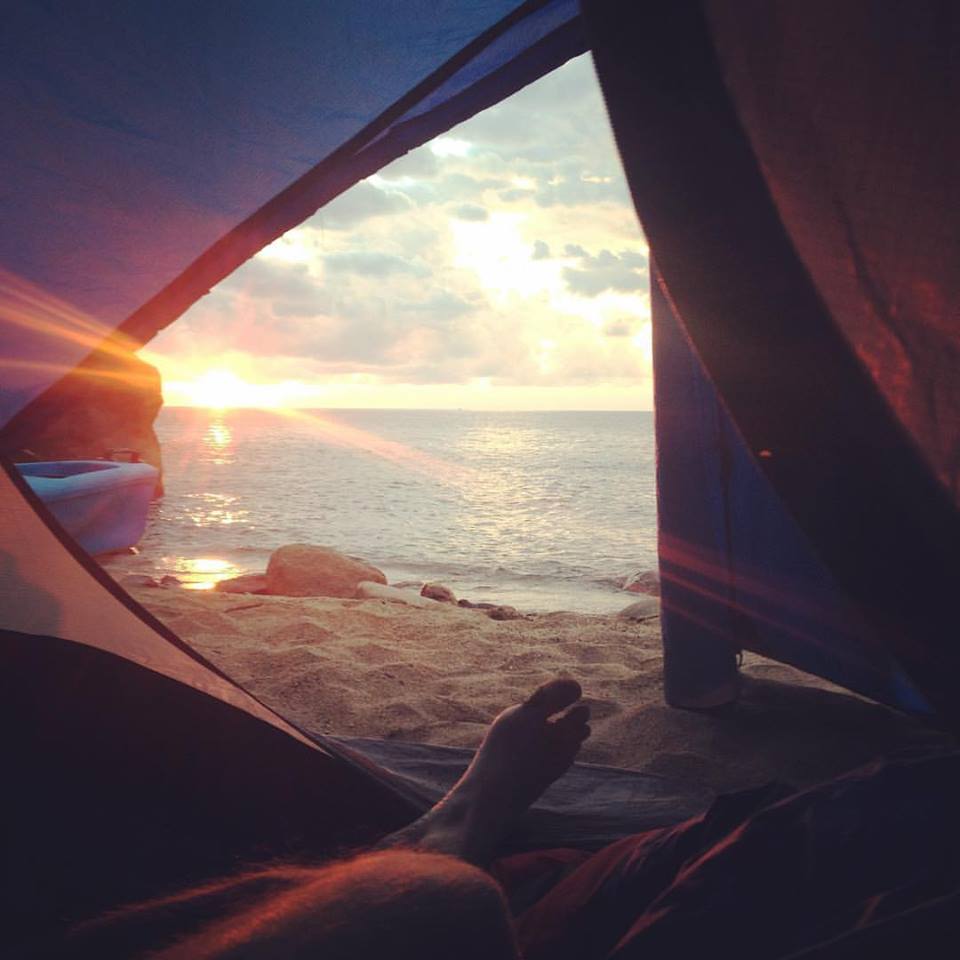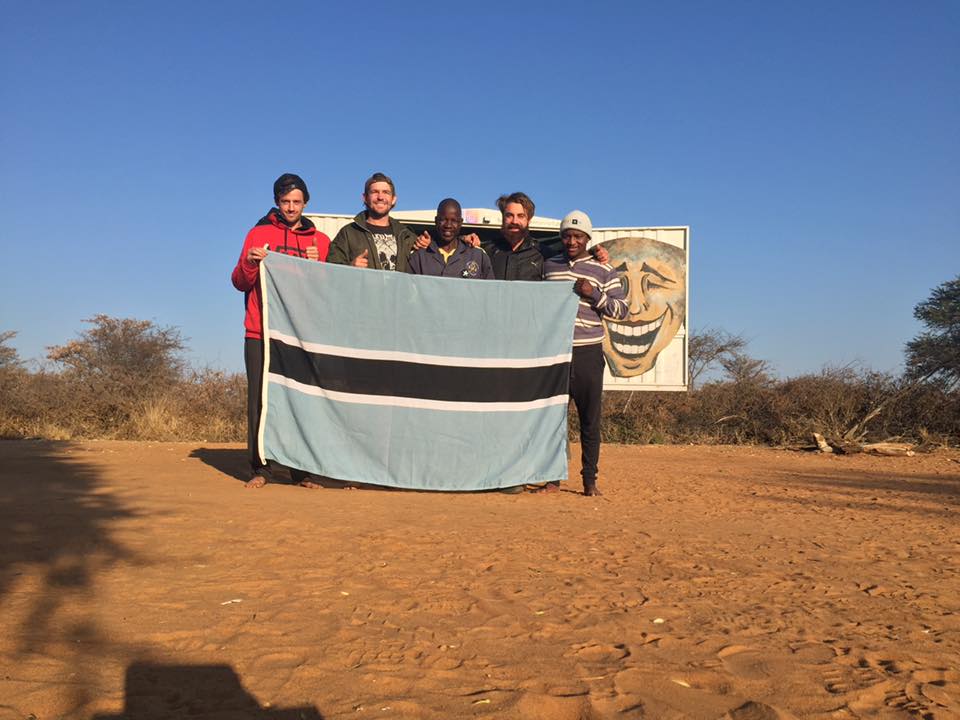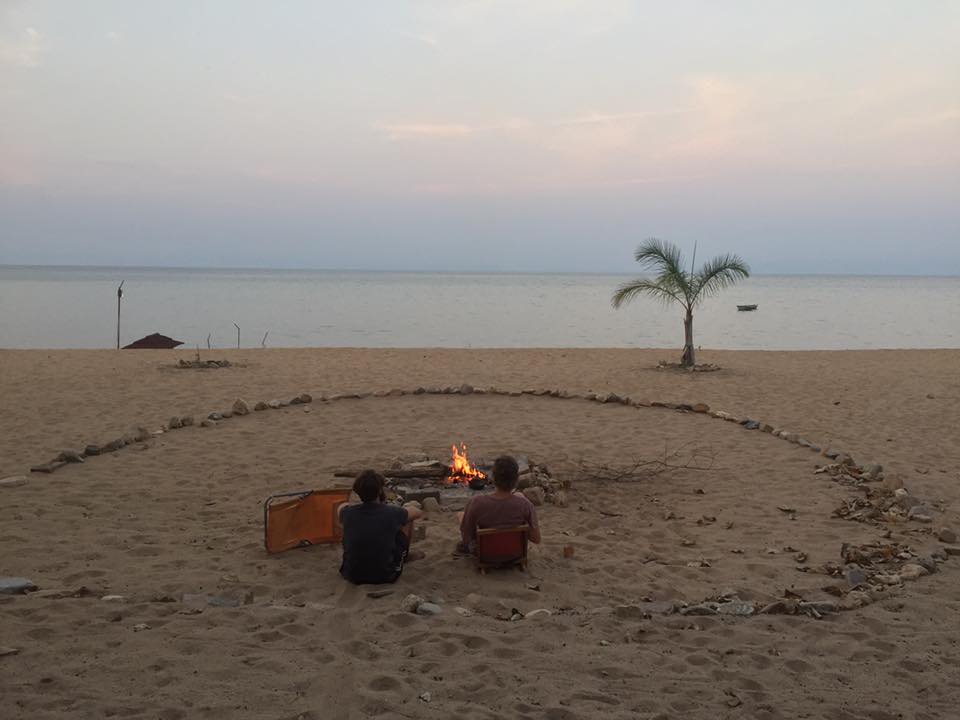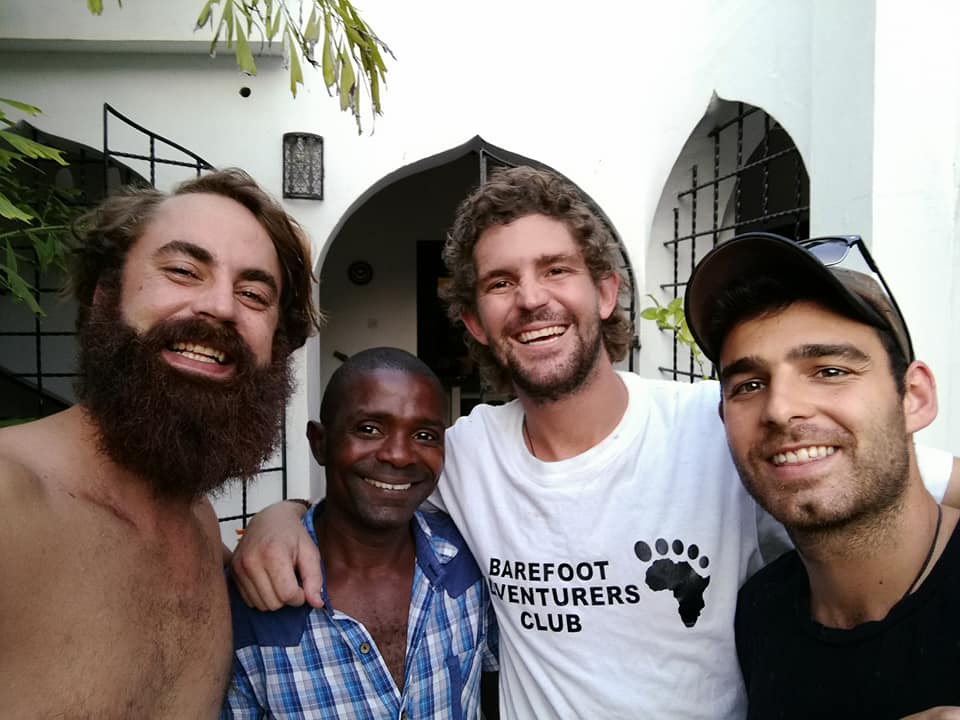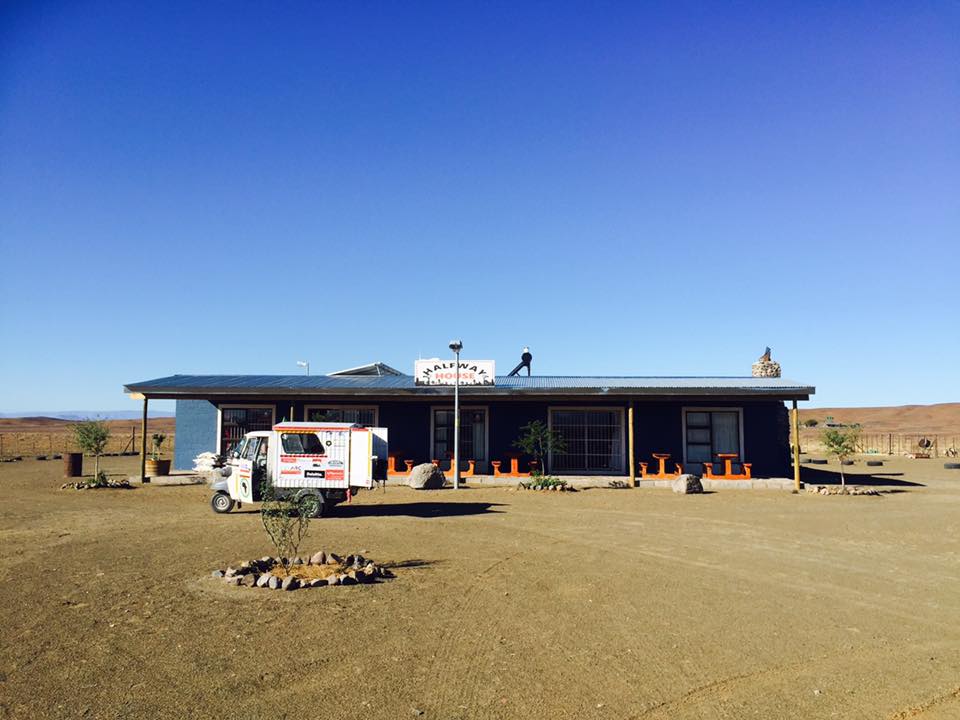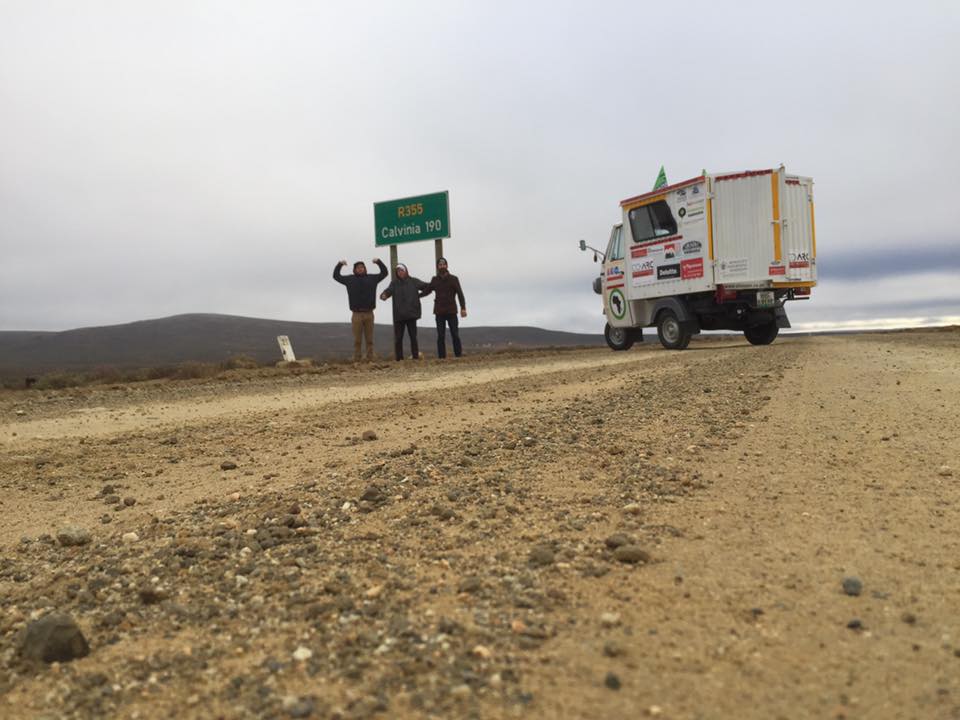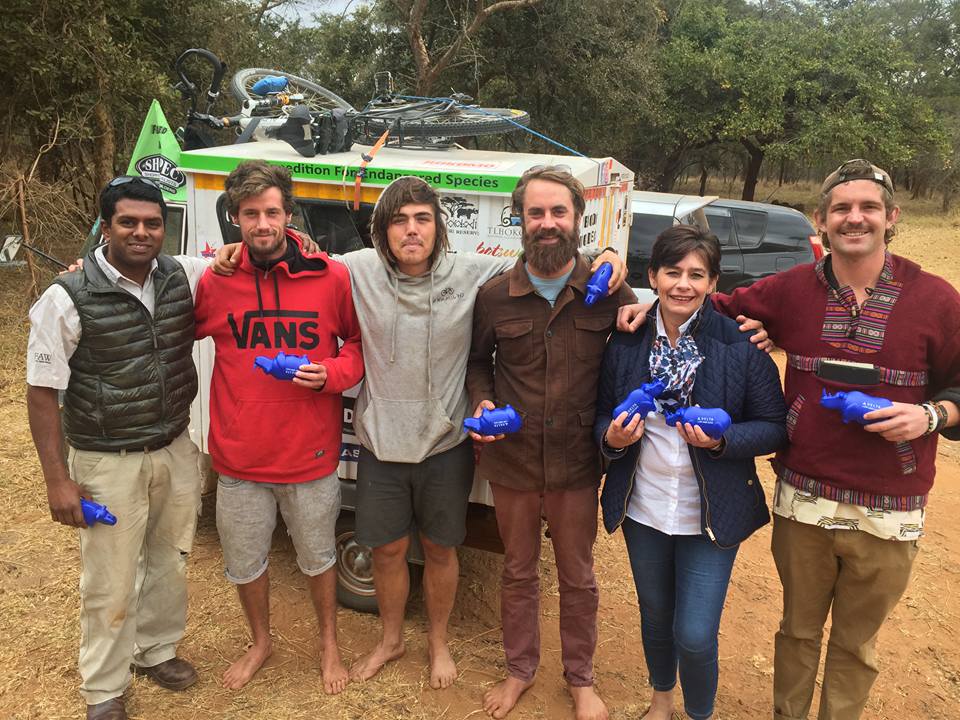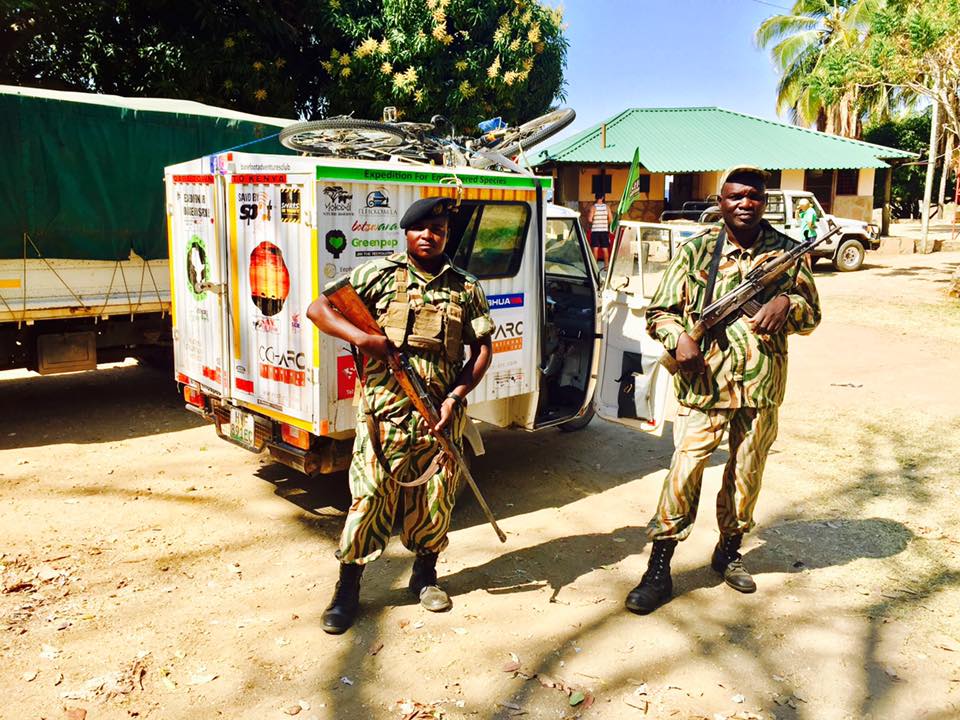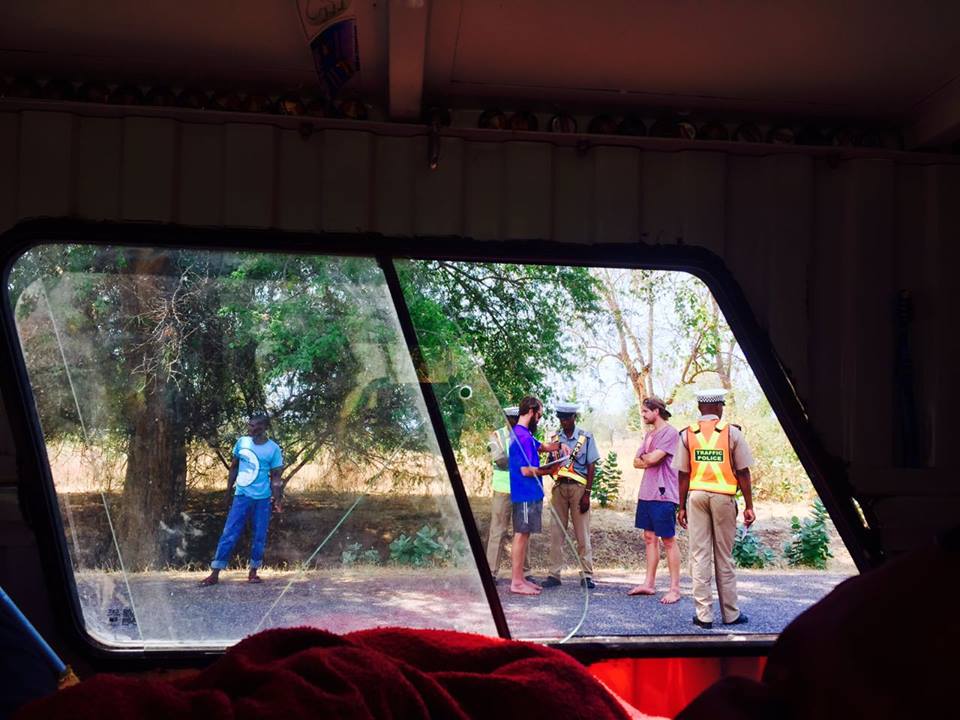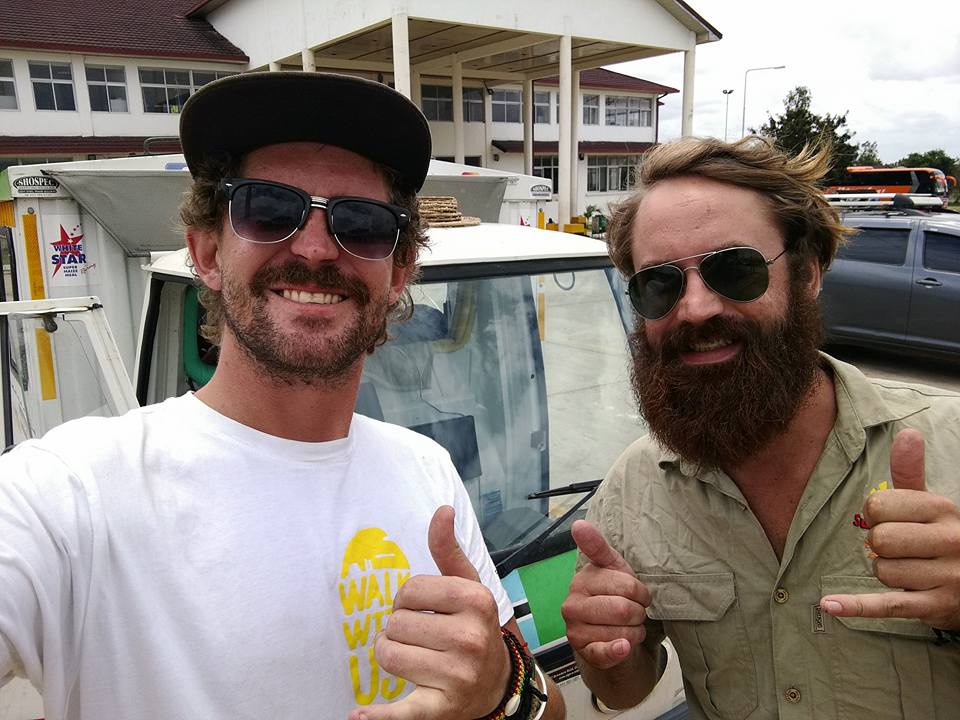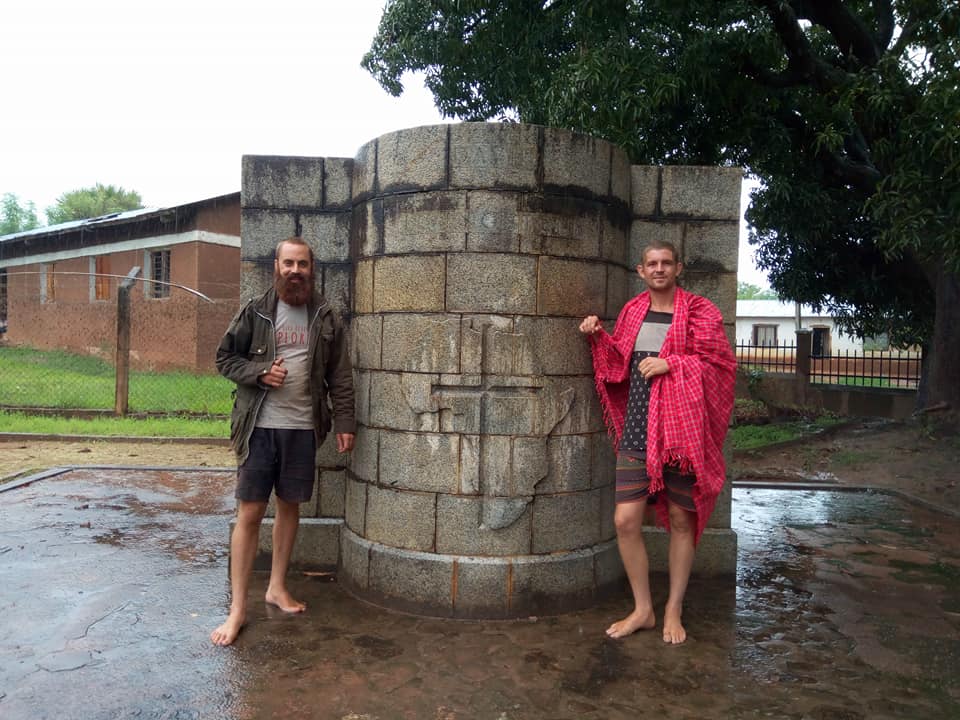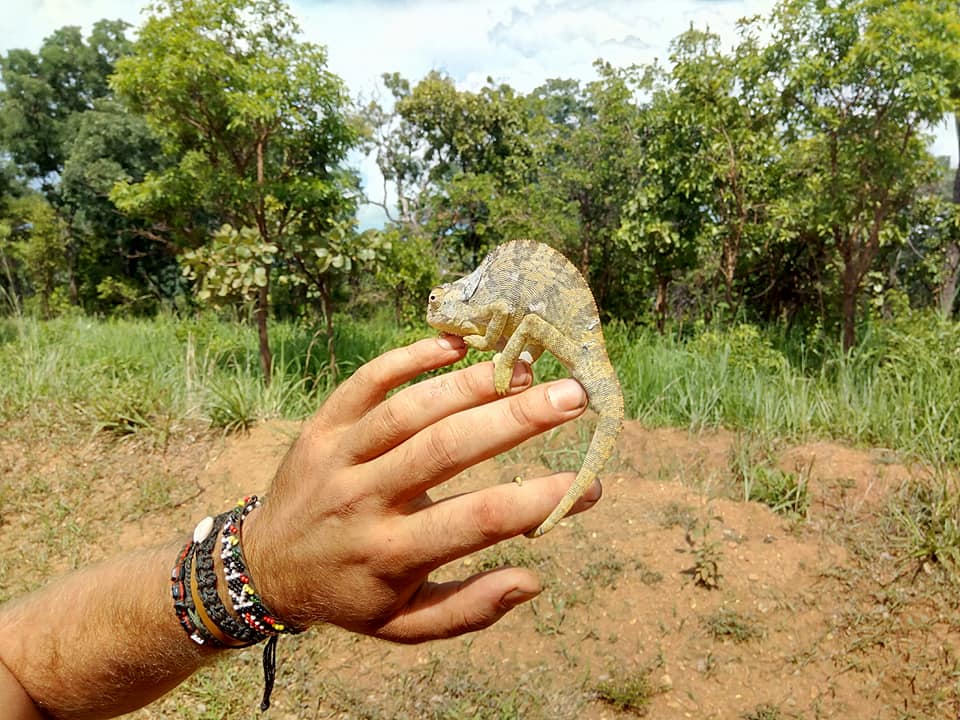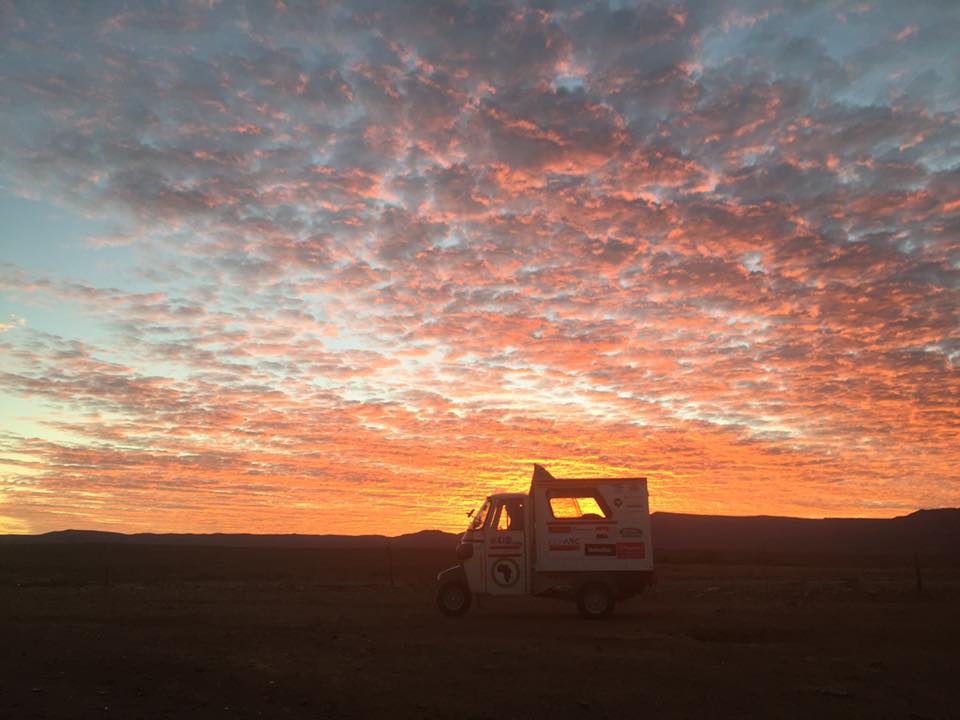Willie Badenhorst: born to be in the bush
All beard and bare feet, Willie Badenhorst is a born adventurer. At just 26 years old, he has circumnavigated Lake Malawi in a kayak and driven a tuk-tuk the 18 000 kilometres from Cape Town to Uganda and back, in a bid to raise awareness for the plight of the natural environment and its animals. And he is already planning his next great trip along with five other adventurers; they hope to circumnavigate the second oldest freshwater lake in the world, Tanganyika, by kayak in early 2019.
Willie has loved to travel for as long as he can remember. His family moved to Gaborone, Botswana from Witbank in South Africa’s Mpumalanga province when he was 15 years old.
“I hitchhiked for the first time from Gaborone to Victoria Falls that same year, over a long weekend. After that I have been hooked, travelling through Africa whenever I can, hitchhiking,” he says with a grin.
But his love affair with nature began much earlier than that.
“My dad is a geologist, so I have been in the bush with him since I was a small kid, and have since followed a career working in the bush.”
Willie has worked as a guide for some of the major safari-tour operators for a number of years, and has travelled between jobs whenever he has had the chance. Conservation and environmental sustainability have always been close to his heart.
In June 2016, Willie joined founding member of the Fine Young Adventurers Club, Myburgh Bester, on his quest to circumnavigate Lake Malawi by kayak in aid of Greenpop, an organisation which plants trees and spreads environmental awareness across southern Africa. Willie stumbled into the opportunity, if you will, when his brother Hannes has been forced to pull out of the trip for personal reasons. A love for adventure clearly runs strong in the Badenhorst family.
“Myburgh didn’t want to do it alone, and so I offered to step in. I went up to Malawi to meet him. I flew from Johannesburg to the capital, Lilongwe, and then I hitchhiked to the lake – naturally,” he explains, smiling.
“We started our expedition in Cape Maclear at the legendary Fat Monkeys lodge. It was very interesting for both of us because when we heard we had been sponsored two solo kayaks by a company in Durban, South Africa, we were very excited. I had never kayaked for long distances or extended periods of time, and so we got quite a shock when the kayaks arrived with no seats or rudders.
“We had to make ourselves two seats out of polystyrene, and we went on without the rudders. Every time the wind picked up, we had to paddle extra hard on one side to keep the kayaks straight.”
Pirates on the water
Willie and Myburgh would end up spending 56 days on Lake Malawi, known as Lake Nyasa in Tanzania and Lago Niassa in Mozambique. They camped on the banks of the lake most nights, and occasionally stayed at backpacker hostels for a little bit of “luxury”.
“We had a GPS with us which told us the distance we had paddled each day but we basically just followed the lake. When you cross country borders, you hear about it from the local people,” he says.
“You have to stamp out in some regions because there are no borders on the lake except for where there are harbours. We were pirates on the lake for a couple of days when we’d stamp out of one country and it would sometimes take us two days to get to the next point where we’d be able to stamp into the next country.”
Willie and Myburgh tried to average 30 kilometres per day, but sometimes it was not to be.
“Some days we’d only manage four kilometres, like the time we were man-down with food poisoning somewhere in Mozambique,” Willie says.
“Paddling north was smooth, easy sailing, and turning south for about one hundred kilometres next to the Livingstone mountains on the Tanzanian side wasn’t too bad. But when we got out into the bay, the Mwera wind coming from the south gave us quite a surprise. The waves were huge; the lake looked like the ocean.”
On one such day, it took the paddlers more than two hours to complete just two kilometres.
“There was no place to beach the kayaks and it was quite scary. There was a time when Myburgh and I lost each other completely only to find each other an hour or two later. I was on my way to find the highest lookout point on land to see if he was still in the water, but found him sitting with his head in his hands on the shore. He was worried about what he was going to say to my parents,” Willie explains.
““But in those moments, we didn’t think about stopping the expedition. We just thought - this is the life!””
Willie says that he was profoundly affected by what he experienced while paddling the more than 1 380 kilometres for the “Lake of Stars Expedition”. He was amazed by the beauty of the northern and eastern parts of the lake and moved by the curiosity and kindness of the Malawian people. He was equally saddened, however, by the overpopulation of the lakeside villages and how few big animals they saw; only two crocodiles and no hippopotamuses.
“I am hoping there are still lots of animals and we just didn’t see them. There were lots of birds though, probably the biggest number of fish eagles and hawks I have seen in my life. And there are beautiful fish called African cichlids which you only find in the rift valley lakes,” Willie says with glee.
The overall experience just made him more determined to give something back to the continent which had given him so much. It was while on a 8 500-kilometre road trip through South Africa, Botswana and Namibia in a Hilux 4x4 with long-time friend Calum Buckmaster the following year that the idea for an even bigger adventure was born. The pair decided that it whatever it was, it had to be long, challenging and a little crazy.
“We could see how the wildlife was declining in the areas we travelled through. You read about it every day in the media. So we decided to do something different to raise awareness, an ‘Expedition for Endangered Species’,” Willie says.
“We knew our transport had to be something very different because we knew anyone in a ‘bakkie’ could do it. We had to do something completely out of the ordinary to get people’s attention. While still on the road trip, Cal and I were going through old photos of Kenya. Friends of ours have a house on the beach in Malindi in the south-east of the country. Cal went there as a kid and there was a photo of him sitting in a tuk-tuk. We looked at each other and said, ‘Hmmm, tuk-tuk!’”
So, Willie and Calum came up with an expedition proposal, sent it to interested parties and met with companies. Willie says at first, the two members of the Barefoot Adventurers Club even wore shoes to the meetings.
Thanks to support from sponsors, family, friends and fellow adventurers, they raised enough capital to buy a tuk-tuk in Port Elizabeth, where Willie currently lives, and start their barefoot adventure in Cape Town on June 12, 2017.
Eight countries in eight months
The tuk-tuk was a 400cc diesel Atul-brand cargo carrier. The duo chose the slightly slower tuk-tuk - with a top speed of 40 kilometres per hour - instead of the traditional passenger vehicle because they would be able to transport their gear in the back.
Affectionately called “Bruski”, a popular reference to a male friend in South Africa, it lived up to its name by transporting Willie, Calum and the friends they met along the way, across eight African countries. From Cape Town, Bruski travelled to Botswana, Zambia, Malawi, Tanzania and Kenya with the surprise addition of Uganda, and back to the Mother City in eight months. Extraordinarily, there were no punctures or mechanical issues either.
For Willie, the highlights of the trip were the wonderful people they met, the incredible hospitality they received and “the beauty of the African continent”. He and Calum have enough tales to fill the pages of a novel.
““People who haven’t travelled in Africa can’t really comprehend how much there is to see.””
“People have a misperception of Africa – the dangers maybe - but it’s amazing how friendly and interested the people were in what we were doing,” Willie explains.
“We did have our phones stolen but it was probably more ‘leaving it unattended’ in my case. That was the worst crime we experienced the whole time. The other low was only being able to travel 40 kilometres per hour in the tuk-tuk. But then again, with the beauty of it all, we didn’t really mind.”
Despite the absolute love for the African continent and its people, Willie adds that he and Calum’s eyes were opened even wider to the environmental problems plaguing the region.
“We learnt a lot more about the battle so many wonderful people and governments are fighting when it comes to endangered animals, and how it feels like it is a losing one, which will be very sad in the long run. When you hear about it from the big players in conservation themselves, it is even harder to hear,” he says.
“I think what is driving me for the next expeditions I am involved in, is to get a bigger base of followers in order to make more of an impact. If we can start focusing on smaller things that really make a change, perhaps we can make a real difference.”
Willie hopes to be the first person in history to circumnavigate the Great African Lakes of Malawi, Tanganyika, Victoria and Edward. At the rate he is going, and should the politics of the region allow it, his dream might not be too far off.
**Thank you to Fine Young Adventurers Club and Barefoot Adventurers Club for the use of their photos.


